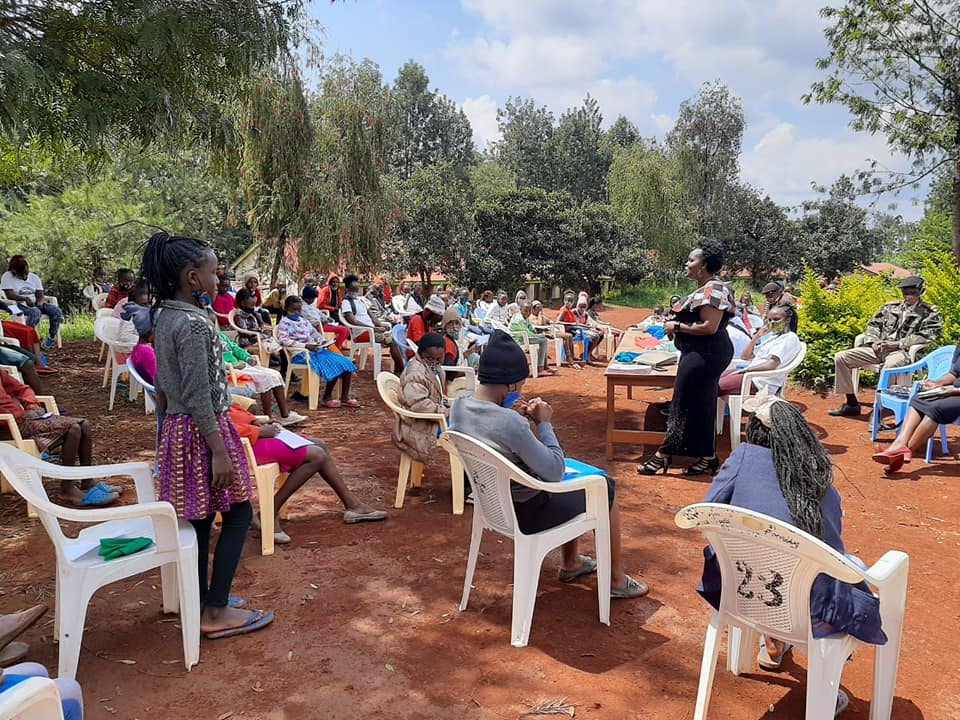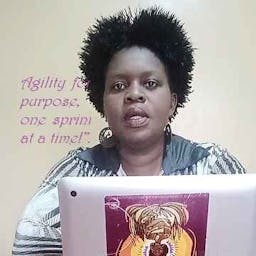SISTERS REACHING OUT TO SISTERS
Aug 30, 2020
Story

I was honored to be interviewed by a fellow World Pulse sister on Education, COVID-19 and the rural children
The below is the report Suzan came up with....
A year ago, digitalisation discuss especially in Nigeria, where I come from became even more intense due to the swift thirst for information, connectivity and networking for most communities especially in rural settings.
Today, digital technology has become a necessity of life. The growing coronavirus pandemic has shown that though the world can shut down in a single breathe, one thing can keep activities steady, digital technology.
A recent visit to the northern rural community I grew up in left me distraught as all I could see were years of abandonment, classrooms that needed rescue and an unfit environment for a child’s brain to develop. Seeing this, made me realise that digit-tech in such a place, was a far-fetched dream. Where children lacked adequate academic materials and not to mention, teachers who are handicapped as they have no grounded knowledge of modern technology.
My thoughts went wild thinking how children especially young girls growing up in rural communities during the forced COVID-19 lockdown must be feeling imprisoned, denied and frustrated.
I believe community leaders need to cry out to governments and organisations for a boost in rural education with well-trained and improved teachers, upgraded learning environment and most importantly digital advancement.
These communities need more than televisions and the radio to inform and enlighten them. They need to connect to the rest of the world and see how education can occur beyond the classroom. Parents in these communities also need to key into this world of knowledge because they owe it to themselves and their children to be technologically compliant.
In my drive to be part of the #SheTransformTech movement where we speak as sisters for digital space to be made available for women and young girls, I decided to move beyond Nigeria to have a chat with my World Pulse sister all the way from Nairobi, Kenya. We had a good laugh and shared tales of the presence of rural education in our countries and how young girls suffer education denial. Above all, we rubbed minds on the way forward for digit-tech to revamp African rural education.
Eunice Owino is a native of Homa Bay County in Kenya. She has a Bachelor’s Degree in Education, a Masters in Sociology, Community Development and is at the brink of finishing her Ph.D. in Development Studies.
With a wealth of experience in the workforce and in the area of non-government movement for women and young girls in ICT through the Centre for Women Empowerment in Technology (CWET), she had a lot to say about rural education and the cry for tech especially for women and young girl within Kenya’s rural community of Homa Bay and Muranga County.
https://gofile.io/d/fBHrlp (Audio link of the interview. Unscripted and unedited to show all technical and personal setbacks).
Adding to her rich efforts towards the #SheTransformsTech, I was also ecstatic to see that the eight-point agenda of the DIGITAL COOPERATION endorsed by the United Nations, had the first point as “Achieving Universal Connectivity.” This for me is the start of something really big. Amina Mohammed, the Deputy Secretary-General, United Nations went further to emphasise that, “All gender gaps must be bridged to ensure that both women and young girls are technologically empowered.”
This says it all for me. Now more than ever, all hands must be on deck to revamp rural education through tech.
As we advocate for better education, youth development and women empowerment, world governments and NGOs cannot put a blind eye to this cause. Digitalisation must be evenly dispersed because if there is to be equality, then there must be equity.
As children in urban settings are able to achieve a continuance in their education through online schooling in the phase of the pandemic, then rural education should not be ignored nor suffer. These children must not be made to feel low self-esteem or see digital education as a thing too advanced for them to grasp. Any low self-worth must be erased and all stigmas countered if we want to ensure that all children, regardless of their background feel important and accepted.
All it takes is one school at a time and with a single computer, education will take a whole new dimension. We need to invest more in tech for rural education.
Competitions and awards should be at the disposal of thousands of rural schools where digit-tech equipment can be won and scholarships made available to every child who has a passion for technology and awaits a chance to advance. These are the moves that can deplete the increasing education gaps in terms of personal and technological development.




